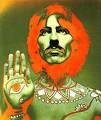Monsanto Gears Up for Price Cuts
 Monsanto Co. signaled that it plans to lower prices of some crop seeds, retreating from its long-range profit goal amid farmers' resistance to seed-price hikes and a 19% drop in fiscal second quarter earnings.
Monsanto Co. signaled that it plans to lower prices of some crop seeds, retreating from its long-range profit goal amid farmers' resistance to seed-price hikes and a 19% drop in fiscal second quarter earnings. The crop biotechnology company is "operating in a very dynamic and competitive environment," said Monsanto Chief Executive Hugh Grant Wednesday. Mr. Grant has often told Wall Street analysts that the superiority of Monsanto's genetically modified seeds allowed the St. Louis company to charge farmers premium prices.
Mr. Grant disclosed few details about Monsanto's new pricing strategy, but he called "penetration pricing" his top priority, suggesting that Monsanto is willing to cut prices of genetically-modified seeds of corn, soybeans and cotton in order to gain market share.
The seed-pricing shift, plus stronger-than-expected generic competition for its glyphosate weedkiller business, prompted the company to drop its goal of doubling gross profit between 2007 and 2012.
Monsanto also said Wednesday that fewer farmers than the company had expected bought two new lines of seed for planting this spring. The two products, which Monsanto executives are banking on to drive sales for several years, are a second-generation version of its herbicide-tolerant soybean and a line of herbicide-tolerant and pest-resistant corn called SmartStax, which is stuffed with eight Monsanto genes.
Carl Casale, Monsanto's finance chief, said U.S. farmers bought enough SmartStax corn seed to plant three million acres instead of the four million forecast by the company. Likewise, farmers bought only enough of the soybean seed line, called Roundup Ready 2 Yield, to plant six million acres instead of the eight million to 10 million acres expected.
Monsanto tried to get farmers to pay roughly $74 for enough of the new soybean seed to plant an acre of land, 42% more than it was charging for the first-generation product. Likewise, Monsanto charged 17% more for its new corn line than its next newest variety.
The recession has depressed agricultural commodity prices, making farmers more resistant to paying higher seed costs. What's more, the Pioneer Hi-Bred seeds unit of DuPont Co. is beginning to regain some of the business it lost during the last decade when Monsanto beat it to the market with new biotechnology traits.
Pioneer, which controlled 32% of the North American market for seed corn in 2009, up two percentage points from 2008, said Wednesday its share of the seed sold for this spring's planting season grew again, but it wasn't specific. Monsanto's share of the U.S. corn seed market, which is about 36%, has been flat for two consecutive years.
Monsanto is confronting the intensified competition even as the Justice Department's antitrust wing is investigating the company's gene-licensing practices.
Monsanto said Wednesday it earned $887 million, or $1.60 a share, during the second quarter ended Feb. 28, which includes the winter months in which most U.S. farmers buy seed for the spring planting season. During the year-ago quarter, Monsanto earned $1.09 billion, or $1.97 a share. Revenue fell 3.6% to $3.89 billion
Based on its depressed second-quarter results, Monsanto said it expects to generate 2010 fiscal year earnings at the lower end of its previous forecast of somewhere between $3.10 a share and $3.30 a share.
Monsanto shares fell 2.1% to close at $68.09 Wednesday.






























1 Comments:
Thank you for sharinng
Post a Comment
<< Home